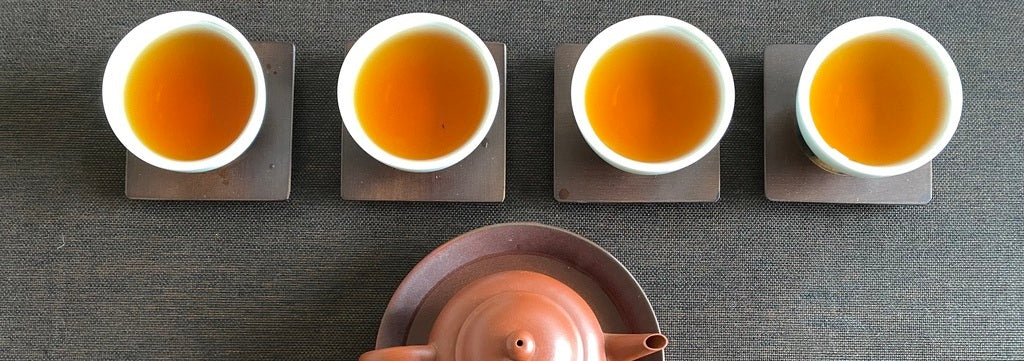Eco-Cha Tea Club

Shui Xian Black Tea Tasting Notes | Eco-Cha Tea Club
The wonderfully bright, clear orange appearance of the brewed tea is the first impressive trait of this tea to be enjoyed. It's just pretty to look at! And while enjoying the visual, the fragrance wafting from the brewed tea leaves is the next sensory assault to delight in. It's a sweet/tart, warming spice potpourri that conjures blackberry torte and rhubarb pie, along with hints of allspice and bergamot.

Qi Yun #23 Black Tea Tasting Notes | Eco-Cha Tea Club

Qi Yun #23 Black Tea | Eco-Cha Tea Club

Ying Xiang Small Leaf Black Tea Tasting Notes | Eco-Cha Tea Club

Ying Xiang Small Leaf Black Tea | Eco-Cha Tea Club

Red Jade #18 Black Tea Tasting Notes | Eco-Cha Tea Club

Red Jade #18 Black Tea | Eco-Cha Tea Club
Batch 84 of the Eco-Cha Tea Club is a Red Jade #18 Black Tea from the historical Sun Moon Lake tea growing region of Taiwan. This cultivar, given the name Red Jade (紅玉) is registered as hybrid #18 by Taiwan's Tea Research and Extension Station. You can learn all about its background in our recent blogpost, but this Black Tea hybrid strain is unique to Taiwan, and was "born" in the 20th century. It has become quite popular over the last 20 years since it was first commercially introduced in the early 2000's.

Alishan Small Leaf Type Black Tea Tasting Notes | Eco-Cha Tea Club

Alishan Small Leaf Type Black Tea | Eco-Cha Tea Club

Hong Oolong Tea Tasting Notes | Eco-Cha Tea Club

Roasted High Mountain Black Tea | Eco-Cha Tea Club


